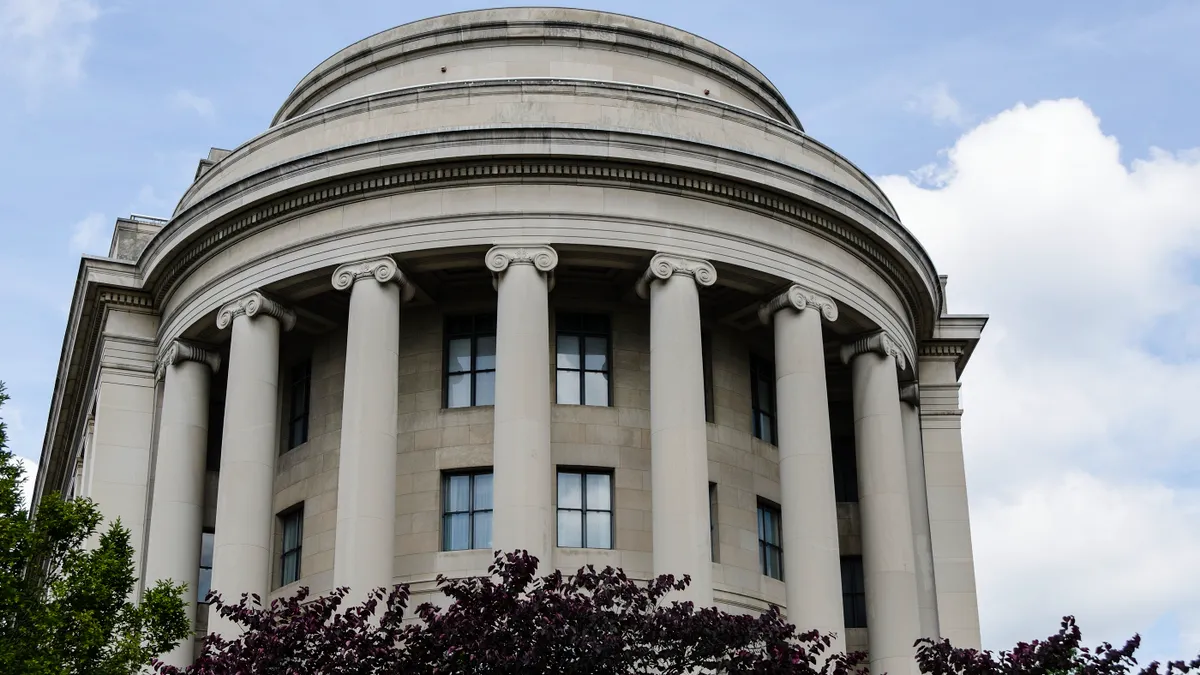Dive Brief:
- The Federal Trade Commission on Oct. 18 asked the 5th U.S. Circuit Court of Appeals to review a Texas district court’s decision setting aside its ban on noncompete agreements in employment contracts.
- Judge Ada Brown issued the decision in Ryan, LLC v. Federal Trade Commission in August, holding that FTC’s ban violated the Administrative Procedure Act and exceeded the commission’s statutory authority. Specifically, Brown said the statute gives it some authority to issue rules to preclude unfair competition methods but that FTC lacked the authority to create substantive rules like the noncompete ban.
- It’s the second such appeal for FTC, which last month appealed a Florida district judge’s decision enjoining the ban. The U.S. Chamber of Commerce, one of the plaintiffs named in the Ryan suit, did not respond to a request for comment.
Dive Insight:
Federal judges had already split on the question of whether FTC’s noncompete ban exceeded its statutory authority. While the Texas and Florida courts blocked the ban from taking effect, a Pennsylvania judge held in favor of the FTC, finding that a tree care company’s claims that it would face nonrecoverable compliance costs and potentially lose employees because of the ban would not be a basis for finding irreparable harm.
The company in the Pennsylvania case, ATS Tree Services, later moved to stay the noncompete ban, but the judge denied this motion, too. The company voluntarily dismissed its lawsuit against FTC in an Oct. 4 court filing.
In an Oct. 19 statement, Emily Dickens, chief of staff and head of government affairs at the Society for Human Resource Management, said that SHRM was “optimistic” that the 5th Circuit would similarly set aside the noncompete ban.
“As with many other business practices, one size does not fit all, and the FTC’s rule imposed a sweeping ban on non-compete agreements, instead of taking a more measured approach to achieve what it initially tried to accomplish,” Dickens said. “The FTC’s failure to consider a less restrictive alternative, and the positive impact a fairly crafted non-compete agreement could have, has hurt both workers and the workplace.”
The Biden administration has seen several of its regulatory efforts meet their ends at the 5th Circuit. That includes the U.S. Department of Labor’s tip credit rule, which the court vacated in August.
Whether FTC will move forward with litigation around the noncompete ban may also depend on the outcome of the 2024 presidential election. The commission voted 3-2 along party lines to approve the final rule that implemented the ban with both Republican commissioners voting against. There is also speculation about whether FTC Chair Lina Khan, a Democrat who has led the agency’s effort to put the ban in place, would be retained by the next president regardless of the election’s outcome, according to Axios.















